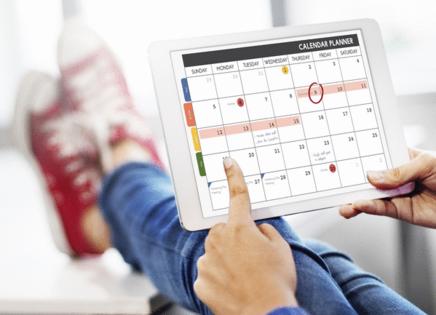Erika Ettin: Can a planner and a non-planner really make it work?
Published in Lifestyles
You’re a planner. You have your calendar color-coded, dinner reservations booked a month in advance, and you know exactly what you’ll be doing on your next vacation, down to which café you’ll stop at for your all-important afternoon iced coffee.
You meet someone who’s all about “going with the flow,” a non-planner who would sooner flip a coin to decide their next move than make a to-do list. It’s exciting, sure – maybe even refreshing. But also perhaps frustrating beyond belief because it’s so different. Can this planner/non-planner dynamic actually sustain a relationship?
The short answer is yes. But – and this is important – it requires understanding, flexibility and a few compromises. Let’s talk about why it can work and what each type can bring to the table (if you’re open to sitting at that table without a reservation!).
Opposites Attract: Embracing the Difference
First, it’s important to note that many successful relationships involve opposites. One person may balance out what the other lacks. Planners bring structure, reliability and the comfort of predictability. Non-planners bring spontaneity, adaptability and a knack for handling the unexpected. It’s possible that each person’s style might even be what attracted you in the first place.
The challenge here isn’t so much that you’re different; it’s more about how you respond to those differences. If you see each other’s planning style (or lack thereof) as a trait to be celebrated rather than something to “fix,” you’re already one step ahead.
Communication is Key
It’s no surprise that communication is the foundation of any relationship, regardless of the people in it, but it’s doubly true for a planner/non-planner duo. The planner in the relationship might crave a sense of order and clarity about what’s coming up, while the non-planner thrives on the freedom to be spontaneous. This doesn’t have to be a source of conflict. Instead, it can be an opportunity to discuss expectations openly.
For example, if you’re the planner, be transparent about your need for a little structure. Maybe it helps if you plan at least one day of the week for date night so you’re not feeling perpetually off-balance. At the same time, the non-planner can communicate what they love about spontaneity and why they prefer not to have every detail locked in. A little understanding goes a long way in diffusing potential frustrations. So, “We have plans Tuesday at 8 p.m. Let’s decide by Tuesday morning at 11 what we’re doing.”
Finding a Happy Medium
While it’s true that no one should have to change their core personality to make a relationship work, compromise can help. Rather than expecting anyone to fully adopt the other’s way of doing things (not just in this, but in life), consider finding a middle ground. For example, maybe the planner takes charge of the essentials, like booking a hotel for a weekend getaway, while the non-planner is free to suggest day-of activities based on what feels right in the moment. Or, for weekly date nights, perhaps you alternate planning duties.
The Perks of Blending Your Styles
Planners might discover that they actually enjoy a touch of the unexpected. Sure, going into a situation without an exact plan can feel daunting, but sometimes, those spur-of-the-moment decisions lead to the most memorable experiences. Planners may also realize that they’re less stressed if they can lean into the flexibility their non-planner partner brings, especially in low-stakes situations.
On the flip side, non-planners may find that a little advance planning isn’t as bad as they’d thought. With some things mapped out, they might feel more relaxed, knowing that their planner partner has their back. And, of course, when it comes to things that really matter – like big life decisions or important milestones – it’s reassuring to have a partner who can help organize the necessary steps.
Dealing with the Occasional Frustration
Even with all the understanding and compromise in the world, there will be times when your differences grate on each other. A lot. When that happens, take a step back and remember what you appreciate about your partner’s style. These moments are normal and don’t have to derail the relationship. Rather, they can remind each of you of the strengths you bring to the partnership. And talking it through is never a bad idea.
So, can a planner and a non-planner make it work? Yes, as long as you approach your differences with respect, curiosity and a willingness to meet in the middle. Embrace what each of you brings to the table, because sometimes, the best relationships are the ones that challenge us to see things from a new perspective.
©2024 Tribune Content Agency, LLC
























Comments